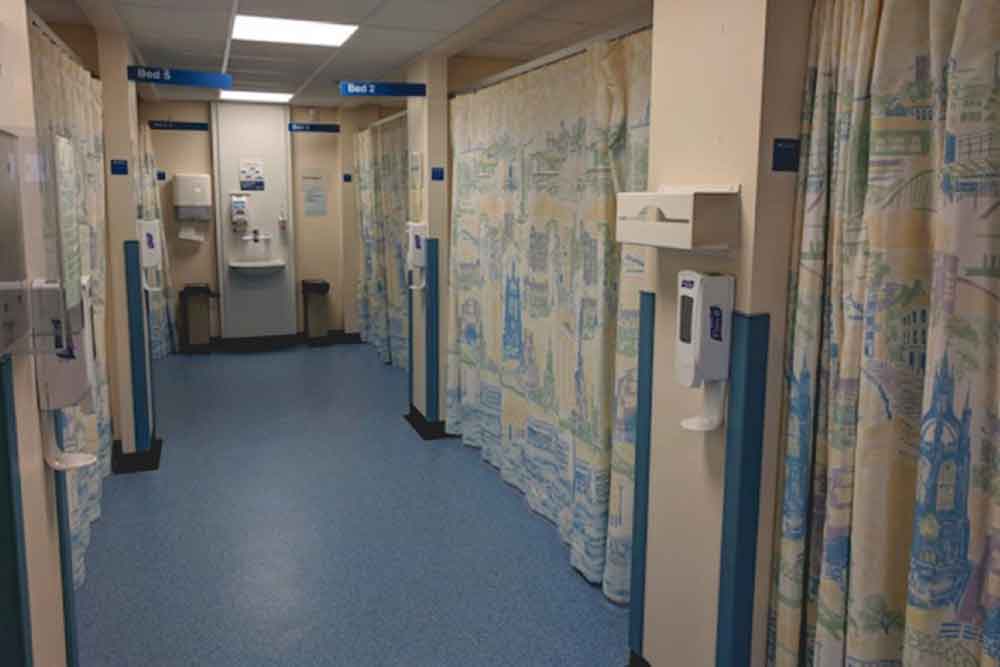Feedback from the North East HCS Trainee Network 2019 event
The North East Healthcare Scientist Trainee Network hosted their Mock OSFA Event on 18th April 2019. The day provided 10 general mock OSFA stations to 40 trainees at the Royal Victoria Infirmary's clinical learning environment.
- Published on
- 17th May 2019
- Filed under
- STP, Trainee Network Group
View of a third year
I think as a third year who has done the ‘real mocks’, it would be good to stress that the huge benefit of doing local mock OSFAs is that you feel much more confident arriving at the ‘real mocks’ (and presumably the real thing), mostly because you are more aware of the system. As a result, you’re able to concentrate on the stations themselves more and become more comfortable with the examination venue. If you were dealing with the format and timings for the first time as well, I think the experience would be more overwhelming. Despite stations being written by trainees and not going through the same quality assurance as real OSFA stations, they seem to be very similar to the ‘real’ (mock) ones, and very much helped me prepare for the professional practice stations. These are stations that might normally feel harder to prepare for, especially for some specialisms, as they cover scenarios that aren’t necessarily common in all specialist environments. In addition, they do help identify areas in which you perhaps need more work – the feedback provided is excellent. It really is good to see how you develop over the years as a trainee. A great deal of work has been put in to ensure that the local mock OSFAs offer an excellent experience for trainees – and I think we get a lot out of it!
View of a second year
The mock OSFA day seems to be one of those days that just ‘happen’. By that I mean that they don’t appear to have the same importance to them as a case study submission or an exam … until the actual day, but they do. The day starts with a quick briefing, what to do and not do, where to stand, what each of the signals mean, which station is the rest station and to sign the attendance sheet. Each station has tailored instructions outside. Behind the curtain awaits the assessor, some equipment and possibly an actor. You have two minutes to read the instructions and plan what you’re going to do. Most of the stations are straightforward, others take a little bit of thinking. Obviously there are limited resources to work with, but the stations work well regardless. The stations are diverse in that they use different resources, actors, spreadsheets, and flipcharts. There is another copy of the instructions and more details of what is required, all to complete in the next 12 minutes. I found myself rapidly running out of time and occasionally missing the last part of the station. The whole session takes around 3 hours including arrival and departure, which seems like a long time, but that time passes very quickly. We are fortunate enough to be able to experience a mock OSFA before the actual official ones. I say this as I didn’t really know what to expect for the first mock OSFA and subsequently I didn’t think that I did the best as I could have. Knowing what to expect this time I was more relaxed; the format was familiar, and they are actually quite enjoyable. There are some things that I meant to ask, such as if I had to introduce myself every time or not, but I found that for those assessors that I didn’t know I did anyway. Being mock OSFAs does not mean that they are not important; they are a valuable resource as a mock but also to identify those areas that require attention from the feedback provided. Every STP should have the opportunity to attend a local mock OSFA.
View of a first year
The mock OSFAs start with a mock OSFA station writing session. This means that the full circuit is written by trainees. We received a full day workshop about what the OSFAs are and how they are written and how they are assessed. Afterwards we split into 10 groups and each wrote a station on one of the examinable domains. As a first year with no experience of the OSFAs, learning how to write a station and score it really helped me to gain an idea of what the assessors are looking for. I felt that the day was very challenging and that I was not happy with my performance. However, this was an invaluable learning experience. I was able to get used to the format and get used to feeling like I didn’t know what to do/say under exam conditions. This will be valuable in the real OSFAs I will sit in just over two years. The feedback was detailed and will provide an excellent revision aid for the real things. The day was extremely well organised with 38 trainees taking part, 50 volunteer assessors, 10 circuit managers and an actor. I would like to thank all those involved for making such a valuable event possible.
